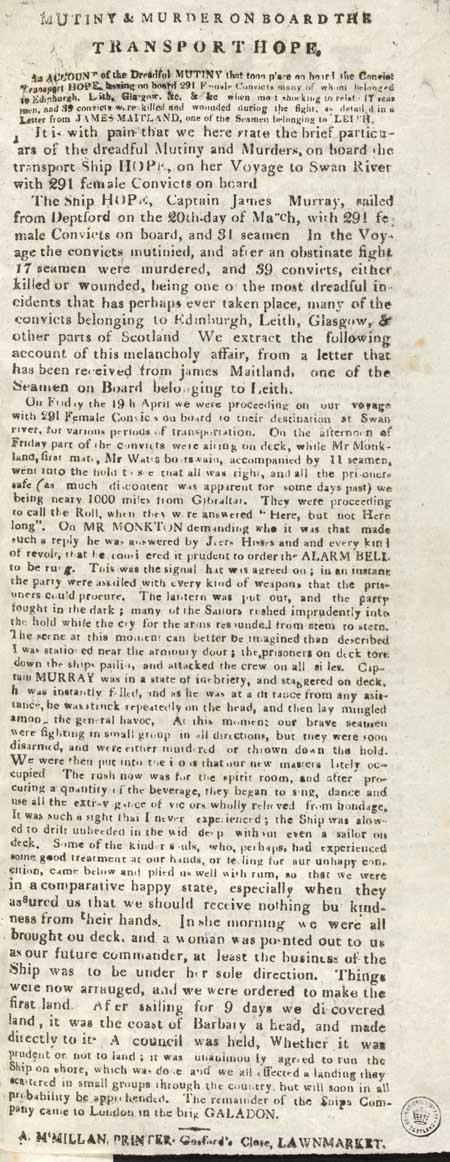Commentary
This crime report begins: 'An ACCOUNT of the Dreadful MUTINY that took place on board the Convict Transport HOPE, having on board 291 Female Convicts, many of whom belonged to Edinburgh, Leith, Glasgow. &c, & &c when most shocking to relate 17 seamen, and 39 convicts were killed and wounded in the fight, as detail d in a Letter from JAMES MAITLAND, one of the Seamen belonging to LEITH.' It was published by A McMillan in the Lawnmarket, Edinburgh. Transportation was the punishment of sending convicts to serve their sentences in overseas territories. It was introduced in the late seventeenth century, when most convicts were sent to the Britain's American colonies. After the American war of independence, Australia became the principal destination of the convict ships. Swan River, which is mentioned in this broadside, was a penal colony in Western Australia, and was the last area in Australia to accept transportees. The final convict transport left Scotland in 1867. Reports recounting dark and salacious deeds were popular with the public, and, like today's sensationalist tabloids, sold in large numbers. Crimes could generate sequences of sheets covering descriptive accounts, court proceedings, last words, lamentations and executions as they occurred. As competition was fierce, immediacy was paramount, and these occasions provided an opportunity for printers and patterers to maximise sales.
View Transcription | Download PDF Facsimile
|
 |
Probable date of publication:
1830 shelfmark: F.3.a.13(77)
 View larger image
View larger image
|


